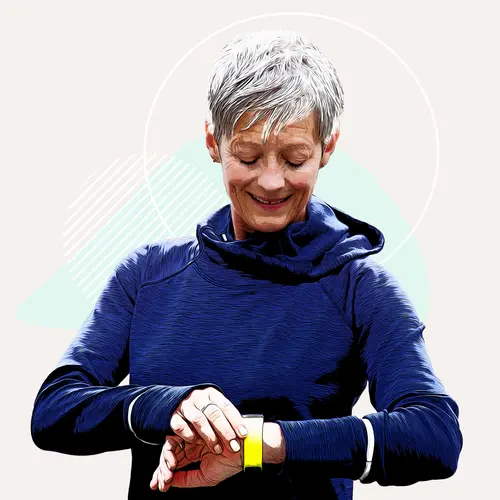The food you eat to fuel your body affects your quality of life. As you get older, you might start to notice that different foods affect how you feel. Some foods give you the energy that lasts all day, while others leave you feeling tired and sluggish.
Enter vegan diets. These plant-based diets are praised for their health benefits. A 2018 Gallup poll revealed that 3% of adults 65 and older said they ate a vegan diet, and 3% of adults between ages of 50 and 64 considered themselves to be vegetarians.
Unlike a vegetarian diet, which can include dairy products and eggs, a vegan diet requires you to remove all animal products in favor of fruits and vegetables, protein-packed pulses like dried peas and beans, and plant-based alternatives to meat and dairy.
What Are the Benefits of Going Vegan After 50?
One of the main reasons that people go vegan is to feel the health benefits. Your 50s can be a time when you’re prone to weight gain, and women especially have a higher chance of getting heart disease due to menopause. Going vegan may help prevent and manage type 2 diabetes, which is common in older adults. When it’s done right, a vegan diet has the potential to:
- Help with weight loss
- Lower the odds of getting heart disease
- Improve health and quality of life
- Promote restful sleep
- Lower blood pressure
- Reduce the risk of diabetes
- Lower cholesterol
- Reduce the chances of getting certain cancers
Simply going vegan doesn’t guarantee health. Some foods that don’t contain animal products are laden with chemicals.
Vegan diets should include a range of vegetables, legumes, nuts, and healthy fats. These healthy foods are rich in antioxidants and fiber that can improve your sleep and give you the energy you need to go about your day.
A nutritious vegan diet can also lower inflammation in your brain which leads to chemical imbalances. That is to say, going vegan may help improve your mood.
Avoiding Dietary Shortfalls
Cutting out meat and dairy can be hard. A challenge you’ll face when switching to a vegan diet is replacing the nutrients you used to get from animal products. Ask your doctor how much of these nutrients you should try to get per day.
Protein. As you get older, protein becomes extra important for you. It helps you maintain muscle mass and bone strength.
Soy products, legumes, nuts, grains, and seeds are great sources of it.
Calcium. Leafy greens, almonds, figs, tofu, and oranges are high in this mineral. Calcium keeps your bones and teeth strong, which is especially important after 50. It also improves your nerve, heart, and blood health.
Vitamin B12. This can’t be found in most plants, nuts, and seeds. People over 50 often have trouble absorbing B12 from food. You should go for fortified plant-based milk, tofu, and cereals that have had nutrients added. This way, your body can absorb the nutrients better. B12 can also be found in supplement form in the pharmacy. Talk to your doctor about how much B12 you should be taking.
Essential fatty acids. Fatty acids play an important role in brain and heart health, and they can lower your chances of getting a heart attack. They’re also anti-inflammatory, which can help with joint pain in older adults. Eat nuts, whole grains, and dark leafy greens like collards and kale.
Vitamin D. Cereals are fortified with vitamin D, and so are many other foods. Another way to get enough is by spending about 15 minutes in the sun each day.
Social Challenges of Going Vegan
Your new lifestyle will bring health benefits, but it might also bring some challenges.
As you fine-tune your new diet, you friends and family will probably stick to their usual eating habits. In social situations, you’ll have to make adjustments.
Dining out will likely be the biggest challenge, but you can still eat out and enjoy yourself without stressing over what you’ll order. Follow these tips:
- Check out the restaurant’s menu online before you go. This will give you a better idea of what to order or any substitutions you’ll need to make.
- Avoid menu items described as creamy, rich, or fried. Instead, look for steamed or baked options. A simpler dish is less likely to have non-vegan ingredients.
- Order burgers or sandwiches without the meat or patty. Ask if meat substitutions are available, and load up on vinegar-based dressings for flavor.
- Pizza can often be made vegan by simply skipping the cheese. Ask for extra sauce and vegetables for maximum flavor.
- Veggie burgers are a common find in restaurants. Make sure the patty and dressings are vegan before ordering.
Starting a Vegan Diet After 50
It’s tempting to go all-in when starting a vegan diet, but it’s important to adjust gradually to your new lifestyle. Burnout is common when you go too hard, too soon.
Take it slow. Make changes a bit at a time. It can help you adjust more easily and boost your chances of sticking with the diet long term. Try phasing out new meat and dairy products weekly. Start by saying goodbye to red meat and pork in favor of lean proteins like chicken and seafood. Then, slowly replace them with vegan protein sources to avoid feeling deprived.
Talk to your partner or friends. Their support can make all the difference. Talk about practical changes you’ll have to make, explain your reasons for making the switch, and talk about how it might affect your relationship with them.
Take note of what you like. Fresh fruits and vegetables, nuts, and grains are available at most grocery stores. There’s often a dedicated section in the supermarket for plant-based protein. Vegan yogurts made with coconut milk are also available in most stores. Experiment to find what works for you.

